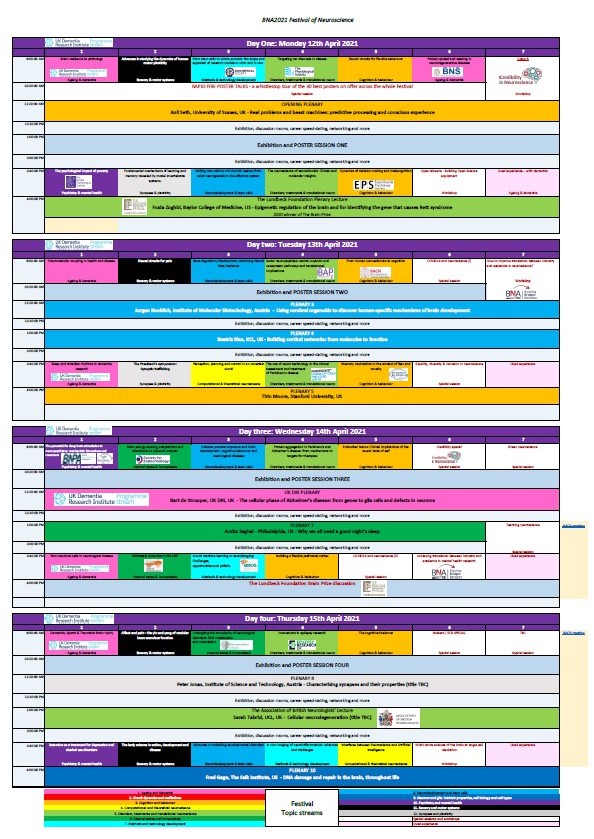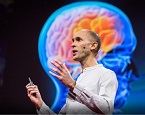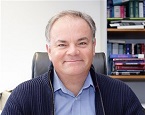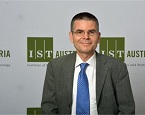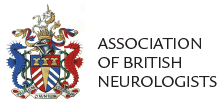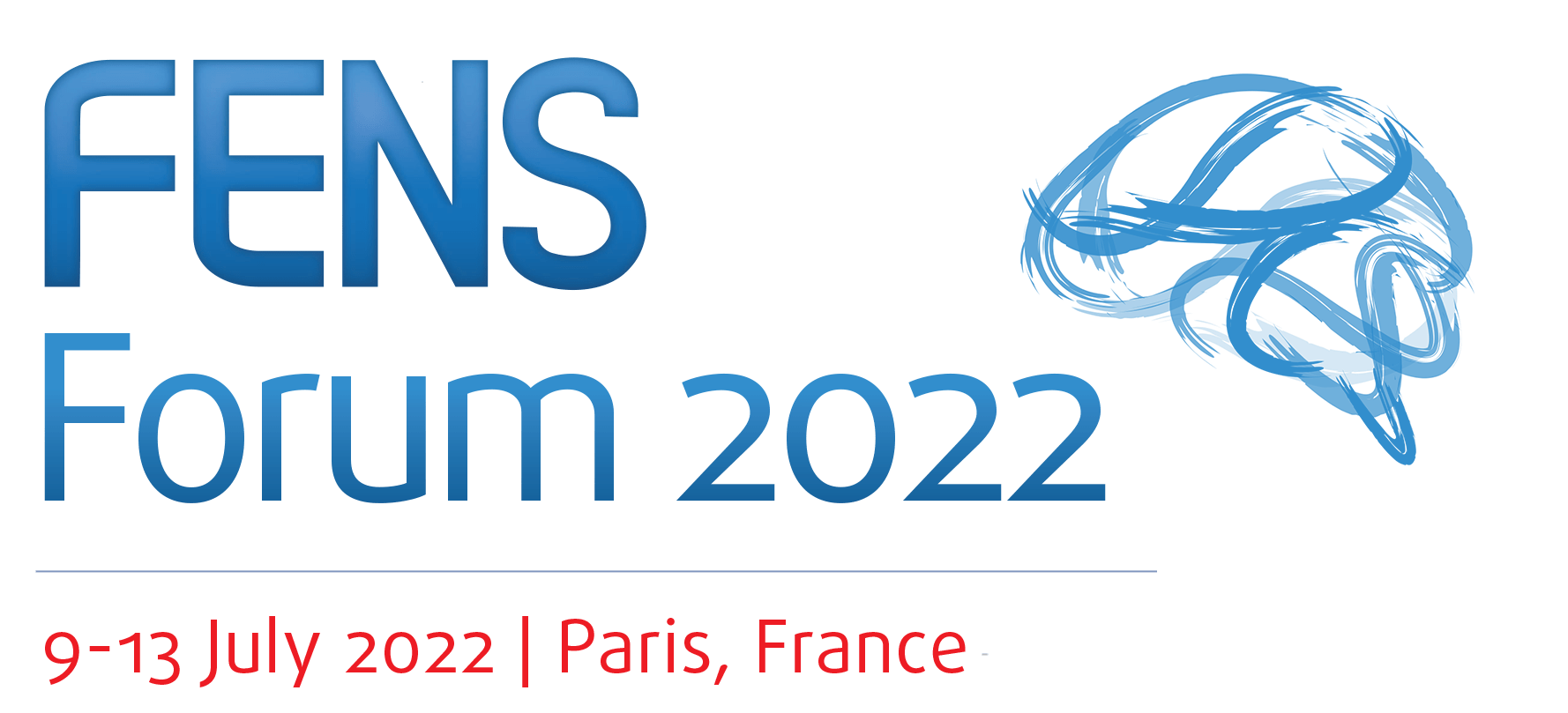Full programme by day
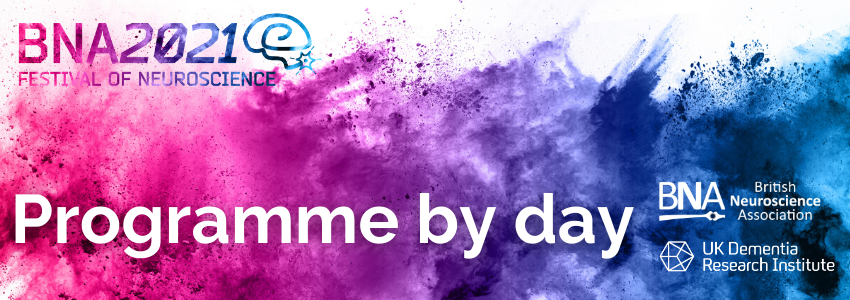
|
Festival Guide |
Click on the links below to see each day's sessions.
- Monday 12th April 2021: Morning
- Monday 12th April 2021: Afternoon
- Tuesday 13th April 2021: Morning
- Tuesday 13th April 2021: Afternoon
- Wednesday 14th April 2021: Morning
- Wednesday 14th April 2021: Afternoon
- Thursday 15th April 2021: Morning
- Thursday 15th April 2021: Afternoon
- Full programme as displayed on the Festival platform
Monday 12th April 2021
09:00 - 11:20 BST Workshop: Using R
Simon White, MRC Biostatistics Unit, UK - R introduction (philosophy, syntax, data structures, etc)
Athanasia Mowinckel, University of Oslo Norway - R for visualisation (plots, graphics, etc)
Delia Fuhrmann, Kings College London UK - R for basic stats (t-tests, anovas, general linear model, linear mixed effects models, etc)
Rogier Kievit, Donders Instittue at Radboud University, The Netherlands - R for multivariate stats (factor analysis, structural equation modelling, etc
Rik Henson, MRC Cognition and Brain Sciences Unit UK - R for Bayesian analysis (brief introduction to Bayes factors, sequential designs)
09:00 - 10:20 BST - Parallel sessions
 Brain resilience to pathology - this session is convened as part of the UK Dementia Research Institute Programme Stream
Brain resilience to pathology - this session is convened as part of the UK Dementia Research Institute Programme Stream
Tara Spires-Jones, UK DRI at University of Edinburgh, UK - non-speaking co-chair
1. Karen Duff, UK Dementia Research Institute at UCL, UK - Mechanisms of vulnerability to pathology in Alzheimer's disease
2. David A.Bennett (co-chair), Rush University, Chicago, USA - Identifying Novel Therapeutic Targets for Resilience to AD/ADRD Neuropathologies
3. Carol Brayne, Cambridge University, UK - Lived lives, dementia and biology: insights from population studies
4. Declan King, UK Dementia Research Institute at University of Edinburgh, UK - Synaptic resilience in Lothian Birth Cohort 1936 participants is associated with maintained cognition during ageing
Advances in studying the dynamics of human motor plasticity
1. Matthew Brookes, University of Nottingham, UK- Developing new solutions for studying brain dynamics during movement
2. Catharina Zich, University College London, UK - Novel aspects of human motor activity: from 3D beta burst events to low gamma activity
3. Holly Rossiter (co-chair), University of Cardiff, UK - Changes in cortical dyanmics during recovery after stroke
4. Charlotte Stagg (co-chair), University of Oxford, UK- Developing neurophysiologically-informed neuromodulation for motor learning and recovery
From stem cells to whole animals: the scope and appraisal of research models in vitro and in vivo - this session is convened and supported by the Biochemical Society
1. Madeline Lancaster, MRC Laboratory of Molecular Biology, Cambridge, UK - Using brain organoids to reveal mechanisms of human brain size determination
2. Selina Wray (co-chair), University College London, UK - Stem cells, organoids and Alzheimer's disease
3. Tilo Kunath, University of Edinburgh, UK- Using pluripotent stem cells to model and treat Parkinson's disease
4. Tom Cunningham, MRC Harwell Institute, Oxfordshire, UK - Using genomically humanised mice to understand human neurodegenerative disorders
5. Clare Stanford (co-chair), University College London, UK - What can (and cannot) be learned from animal behavioural models of complex human neuronal disorders?
Targeting ion channels in disease - this session is convened and supported by the The Physiological Society
Gary Stephens, University of Reading, UK - non-speaking co-chair
Gerald Obermair, Karl Landsteiner University, Krems, Austria - non-speaking co-chair
1. Thomas Voets, VIB Center for Brain and Disease Research, Leuven, Belgium - Targeting TRP channels for pain relief
2. Cornelia Ablinger, Medical University of Innsbruck, Austria - Calcium channel modulation by alpha2delta subunits
3. Edward Stevens, (Metrion Biosciences) UK - Ion channels as drug targets: an industry perspective
4. Charlotte Day, University of Reading UK - Targeting ionotropic glutamate receptors with auto-antibodies
Neural circuits for flexible behaviour
1. Adil Khan (co-chair) King's College London, UK - Adaptive neural circuits underlying flexible visual behaviour
2. Athena Akrami (co-chair), University College London, UK - Use of sensory history in optimal learning of temporal structures
3. Katharina Wilmes, Imperial College London, UK - Gating and guiding synaptic plasticity in cortical circuits
4. John Duncan, Cambridge University, UK - A core brain network for cognitive integration
Protein spread and seeding in neurodegenerative diseases - this session is convened and supported by the British Neuropathological Society
1. Luc Buee, University Lille, Inserm, France - Tau pathology seeding and spreading
2. Veerle Baekelandt, Department of Neurosciences, KU Leuven, Leuven, Belgium - Alpha-synuclein pathology seeding and spreading
3. Sebastian Brandner, UCL Hospitals NHS Foundation Trust, London, UK- Prion pathology seeding and spreading
4. Zane Jaunmuktane, University College London, Department of Clinical and Movement Neurosciences, London, UK - Amyloid-beta pathology transmission
Top
10:20 - 11:20 BST - Special Session: Rapid Fire poster talks
11:20 - 12:20 BST - Opening plenaryAnil Seth, University of Sussex, UK
|
12:20 - 13:00 BST - Exhibition, discussion rooms, career speed-dating, networking and more
13:00 - 14:00 BST - Exhibition and POSTER SESSION ONE (Monday) |
14:00 - 14:40 BST - Exhibition, discussion rooms, career speed-dating, networking and more
Monday 12th April 14:40 - 16:00 BST - Parallel sessions
The psychological impact of poverty - this session is convened and supported by the British Psychological Society
Sophie Wickham, University of Liverpool, UK - non-speaking co-chair
1. Michael Thomas (co-chair), Birkbeck, University of London, UK- Neurocognitive approaches to addressing the effects of poverty on education
2. Sebastian Lipina (co-chair), CEMIC-CONICET, Buenos Aires, Argentina - Updates in the neuroscientific studies on childhood poverty
3. Philip Murphy, Edge Hill University, Ormskirk, UK - Understanding the relationship between addiction and poverty in combating disadvantage in society
4. Jennifer Sheehy-Skeffington, London School of Economics, UK- Understanding the impact of poverty on decision-making processes
Fundamental mechanisms of learning and memory revealed by model invertebrate systems
1. Ildiko Kemenes (co-chair) University of Sussex, UK - Cellular mechanisms of memory interference and generalization in Lymnaea
2. Martin Giurfa (co-chair), University Paul Sabatier,Toulouse, France - New insights into the formation of protein-synthesis dependent memories after single-trial appetitive conditioning in the honeybee
3. Catharine Rankin, University of British Columbia, Vancouver, Canada - The unfolding complexity of habituation, the simplest form of learning
4. Annekathrin Widmann, University of Göttingen, Germany - Insulin signaling and memory formation in Drosophila
Adding new cells to old circuits: lessons from adult neurogenesis in the olfactory system
1. Fiona Doetsch, University of Basel, Switzerland - Diversity and regulation of adult neural stem cells
2. Claire Cheetham (co-chair), University of Pittsburgh, USA - Functional regeneration of adult olfactory bulb circuits after olfactory sensory neuron ablation
3. Mariana Alonso, Institut Pasteur, Paris, France - Distinct granule cell populations are uniquely engaged in odor learning
4. Candida Tufo, King's College London, UK - Plasticity in adult-born olfactory bulb dopaminergic neurons
The neuroscience of cannabinoids: Clinical and molecular insights
1. Tom Freeman, University of Bath, UK - Non-psychotropic cannabinoids in medicinal use - from neuroscience to psychiatry
2. Aikaterini Vezyroglou (co-chair), UCL Great Ormond Street Institute of Child Health, UK - Insights to Cannabinoids efficacy in the treatment of epilepsies
3. Melissa Barker-Haliski, University of Washington, USA - Preclinical evidence for the efficacy of cannabidiol in epilepsy treatment
4. Robin SB Williams (co-chair), Royal Holloway University of London, UK - New Insights to mechanisms of action of cannabidiol and other cannabinoids in the treatment of neurological disorders
Dynamics of decision-making and metacognition - this session is convened and supported by the Experimental Psychology Society
1. Lucie Charles (co-chair), UK - talk title TBC
2. Brian Maniscalco, University of California, USA - talk title TBC
3. Annika Boldt (co-chair), University College London, London, UK - talk title TBC
4. Christopher Fetsch, John Hopkins University, Baltimore, USA - talk title TBC
WORKSHOP - Open Labware: Building open science equipment
1. Andre Maia Chagas, University of Sussex - Open Neuroscience: Challenging academic barriers with Open Source hardware
2. Barbora Marsikova, Leibniz-Institute of Photonic Technology - UC2: Modular bridge between methods and applications
3. Matthieu Louis, University of California, Santa Barbara - PiVR: a versatile closed-loop tracker to create virtual sensory realities on a budget
4. Victor Kumbol, Charité - Universitätsmedizin Berlin - DIY Labware: Leveraging open hardware to promote science in Africa
SPECIAL SESSION - Lived experience... with dementia
Join Nick Fox, Director of the UCL Dementia Research Centre, in conversation Sophie Leggett, who carries a mutation in the PSEN1 gene that causes early onset Alzheimer’s disease. There will be plenty of opportunity for audience members to also ask questions and gain insights from someone who is so personally affected by progress in neuroscience research.
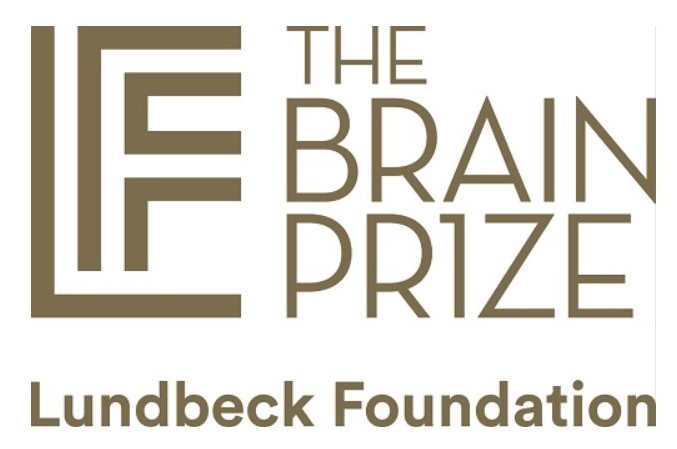
16:00 - 17:00 BST - The Lundbeck Foundation Plenary Lecture:Huda Zoghbi, Baylor College of Medicine, US
|
17:00 BST onwards: open opportunity for engaging with delegates, exhibitors and speakers
17:00 - 18:30 BST: The multiple ph(f)aces of fenfluramine
|
Tuesday 13th April 2021
09:00 - 11:20 BST - WORKSHOP: How to improve translation between industry and academia in neuroscience?
Sir Mene N Pangalos, EVP & President BioPharmaceuticals R&D, AstraZeneca -Opening Plenary: Looking to the future
Dr Eva Loth, Senior Lecturer in Psychology and Deputy Director of the AIMS-2-TRIALS, KCL
What does good translation look like? - an academic perspective
Dr Justin Bryan, Executive Director of Drug Discovery at LifeArc
Translation - bridging the gap between academia and industry
Dr John Huxter, Principal Scientist at Transpharmation Ltd
Pitfalls and prospects for cognitive assays in preclinical research
Chaired by Professor Tom Otis, Sainsbury Wellcome Centre, London UK
With Mariana Fontes (Abcam), John Isaac (Johnson and Johnson Innovation), Anthony Holmes and Nathalie Percie du Sert, (NC3Rs)
09:00 - 10:20 BST - Parallel sessions
Neurovascular coupling in health and disease
1. Clare Howarth (co-chair), University of Sheffield, UK - Role of inhibitory interneurons in control of cerebral blood flow
2. Catherine Hall (co-chair), University of Sussex, UK - Differences in neurovascular coupling between the hippocampus and neocortex may underlie susceptibility to degeneration
3. David Attwell, University College London, UK - Capillary pericytes reduce cerebral blood flow in Alzheimer's disease and Covid-19
4. Joshua Shrouder, Ludwig Maximilian University of Munich, Germany - Mapping pericyte cell fate after cerebral ischemia
Neural Circuits for Pain
1. Carole Torsney (co-chair), University of Edinburgh, UK - Sex- and injury-dependent regulation of spinal nociceptive drive
2. Liam Peck, University of Oxford, Oxford, UK - Contributions of Kcna6-expressing primary sensory neurons to acute and chronic pain sensation
3. David I Hughes (co-chair), University of Glasgow, UK- Defining a spinal microcircuit that gates myelinated afferent input: implications for tactile allodynia.
4. Kirsty Bannister, KCL, UK- The anatomy and functionality of descending modulatory pathways in health and disease
Gene regulatory mechanisms underlying neural fate decisions
1. Vijay Tiwari (co-chair), Queen's University Belfast, UK - Deciphering the epigenetic code of neurogenesis
2. Francois Guillemot, The Francis Crick Institute, London, UK - Regulation of the transition from developmental to adult neurogenesis
3. Federico Calegari, Centre for Regenerative Medicine, Dresden, Germany - Giving more neurons to the brain, from the womb to the grave
4. Victor Borrell, Instituto de Neurociencias, Alicante, Spain - Genetic evolution of cerebral cortex size determinants
5. Setsuko Sahara (co-chair), Centre for Developmental Neurobiology, King's College London, UK - Post-translational modification controls generating cortical progenitor diversity
Social neuropeptides: central oxytocin and vasopressin pathways and translational implications - this session is convened and supported by the British Association for Psychopharmacology
Yannis Paloyelis, King's College London, UK - non-speaking co-chair
1. Valery Grinevich (co-chair), Central Institute for Mental Health, Mannheim, Germany - The central oxytocin and vasopressin systems: diversity of cell types, their targets and behavioural effects
2. Bice Chini, CNR Neuroscience Institute, Milan, Italy - Neuropeptide signalling in the brain: advances and new pharmacological tools
3. Francoise Muscatelli, Institut de Neurobiologie de la Méditerranée, Marseille, France- Oxytocin signalling in early life and the development of autistic spectrum disorders
4. Daniel Martins, King's College London, UK - From the nose to the brain? Central target engagement varies with method of administration and dose in human
From human connectomics to cognition - this session is convened and supported by the British Association for Cognitive Neuroscience
Jamie Ward (non speaking co-chair), University of Sussex, UK
1. Diego Vidaurre (co-chair), University of Aarhus, Denmark - Characterising brain network dynamics in rest and task
2. Brontë McKeown, University of York, UK - Neurocognitive hierarchies as a state space for on-going thought
3. Joana Cabral, Champalimaud Center for the Unknown, Portugal - Patho-connectomics: how disrupted functional networks lead to psychiatric disorders
4. Romy Lorenz, University of Cambridge, UK - Neuroadaptive technology for cognitive neuroscientists
SPECIAL SESSION: COVID-19 and neuroscience: Insights into the clinical and pre-clinical manifestations of COVID-19 (one of two complementary sessions, click for more information)
Chair: Anne Lingford-Hughes
1. Laura Benjamin, Laboratory of Molecular and Cell Biology, UCL - Cerebrovascular manifestations of COVID-19
2. Timothy Nicholson, KCL - Neuropsychiatric manifestations of COVID-19
3. Ross Paterson, UCL - Neuroinflammatory and Neurodegenerative manifestations of COVID-19
4. Madeline Lancaster, Laboratory of Molecular Biology, Cambridge University - An update on the pathobiology of COVID-19 and the Central Nervous System
Followed by wider panel discussion
10:20 - 11:20 BST - Exhibition and POSTER SESSION TWO (Tuesday) |
11:20 - 12:20 BST - Plenary: The Wolstencroft LectureJurgen Knoblich, Institute of Molecular Biotechology, Austria
|
12:20 - 13:00 BST - Exhibition, discussion rooms, career speed-dating, networking and more
13:00 - 14:00 BST - Plenary:Beatriz Rico, KCL, UK
|
14:00 - 14:40 BST - Exhibition, discussion rooms, career speed-dating, networking and more
14:00 - 14:40 BST - Tips and tricks to improve your patch clamp experiments
|
Tuesday 13th April 14:40 - 16:00 BST - Parallel sessions
 Sleep and circadian rhythms in dementia research - part of the UK Dementia Research Institute Programme Stream
Sleep and circadian rhythms in dementia research - part of the UK Dementia Research Institute Programme Stream
1. Derk-Jan Dijk (co-chair), UK Dementia Research Institute Care Research and Technology and Surrey Sleep Research Centre, UK - Why and how to target sleep and circadian rhythms in dementia
2. Erik Musiek,The Hope Center, Washington University in St. Louis, USA - Circadian clock genes in neurodegenerative diseases
3. Raphaelle Winsky-Sommerer (co-chair), University of Surrey, UK - Targeting sleep in mouse models of dementia
4. Berta Anuncibay-Soto, UK Dementia Research Institute at imperial College London, UK - Does insomnia enhance onset of dementia? Novel mouse models of insomnia
THE PRESIDENT'S SYMPOSIUM: Synaptic trafficking
Annette Dolphin, UCL, UK - non-speaking co-chair
1. Alison Twelvetrees, Sheffield University, UK - Understanding kinesin powered axonal transport, one step at a time
2. Kristen Harris, University of Texas, USA - Impact of local presynaptic and postsynaptic resources on synapse clustering
3. Yishi Jin, University of California, USA - Cytoskeleton dynamics in synapse maintenance
4. Jing Ren, The MRC Laboratory of Molecular Biology, UK - Functional organization of the midbrain serotonin system
Perception, planning and control in an uncertain world
1. Maneesh Sahani, (Co-Chair) The Gatsby Unit, University College London, UK
2. Peggy Series, (Co-Chair) University of Edinburgh, UK
3. Eszter Vertes, DeepMind, UK
4. Daniel Wolpert, Columbia University, US
The use of neuro-technology the clinical assessment and treatment of Parkinson's - this session is convened and supported by Parkinson's UK
1. Michele Hu (co-chair), Oxford University, UK - Use of wearable technology in the assessment of Parkinson’s
2. Alison Yarnall, Newcastle University, UK - Vagus nerve stimulation for improving neural control of gait in Parkinson’s Disease (AdVaNSING-PD) (Hilmar Sigurdsson conducting Q&A)
3. David Wilkinson (co-chair), University of Kent, UK - Advances in the use of vestibular stimulation to treat Parkinson’s
4. David Dexter, Parkinson's UK, UK - A novel working partnership to overcome the challenges of treating tremor – Emma’s Watch
Memory modulation in the context of fear and novelty - this session is convened and supported by the European Brain and Behaviour Society
1. Harmen Krugers (co-chair), SILS-CNS, Amsterdam, The Netherlands - Glucocorticoid modulation of synapses, ensembles and fear
2. DorothyTse (co-chair), The University of Edinburgh, Edinburgh, UK - Optogenetic Locus Coeruleus activation of tyrosine-hydroxylase-expressing neurons enhances everyday memory in rats
3. Regina Sullivan, New York University, New York, USA - Neurobehavioral transitions in fear learning and social blockade?
4. Tomas Ryan, Trinity College Dublin, Dublin, Ireland - Forgetting as a form of learning
SPECIAL SESSION: Steps towards decolonising teaching and learning in neuroscience
Siddharthan Chandran (Chair), University of Edinburgh, UK | Director of Edinburgh Neuroscience
Yvonne Mbaki (Panellist) University of Nottingham, UK
Rebecca Trueman (Panellist) University of Nottingham, UK
Sarah Guthrie (Panellist) University of Sussex, UK
Aisha Islam (Panellist), Newcastle University I BNA Scholar
SPECIAL SESSION: BeIncredible with the Credibility in Neuroscience Prize winners
Student Researcher Credibility Prize 2021 winner: Marta Topor (University of Surrey, UK)
Individual Researcher Credibility Prize 2021 winner: Amy Orben (University of Cambridge, UK)
Team Credibility Prize 2021 winner: Malcolm Macleod and Kaitlyn Hair from CAMARADES (University of Edinburgh, UK)
With tips and inspiration for your own research
Wednesday 14th April 2021
09:00 - 10:20 BST - Parallel sessions
The potential for deep brain stimulation in neuropsychiatry: mechanistic biomarkers and treatment - this session is jointly convened and supported by the British Neuropsychiatry Association and the Société des Neurosciences.
Camilla Nord, University of Cambridge - Non-speaking co-chair
1. Eric Burgiere, Brain and Spine Institute (ICM) in Paris, France - Prevention of compulsive behaviours by closed-loop optogenetic stimulation
2. Christelle Baunez, Aix-Marseille University, France - Subthalamic nucleus oscillatory activity as a predictive marker of vulnerability to addiction: a basis for a surgical treatment of addiction
3. Valerie Voon,(Co-Chair) University of Cambridge - Decreasing subjective negative emotional biases with acute time-locked alpha frequency subthalamic stimulation
4. Eileen Joyce, UCL - Deep brain stimulation for severe obsessive compulsive disorder: which target?
Brain energy sensing, adaptations and alterations to network outputs - this session is convened and supported by the Society for Endocrinology
1. Craig Beall (co-chair), University of Exeter, UK - The brain fuel gauge: AMP-activated protein kinase
2. Linford Briant, University of Oxford, UK - Hindbrain control of glucagon secretion
3. Alison McNeilly (co-chair), University of Dundee, UK - Neural control of glucose homeostasis
4. Cristina García Cáceres, German Research Center for Environmental Health, Munich, Germany - Hormonal control of neuorotransmitters and energy metabolism
Adverse prenatal exposure and brain development: cognitive behaviour and neurological diseases
1. Susannede Rooij, University of Amsterdam, The Netherlands - Prenatal exposure to undernutrition and cognitive and brain aging: the Dutch famine birth cohort study
2. Erik Mire (co-chair), Cardiff University, UK - Developmental programming of cortical circuits by maternal diet
3. Harry Potter, University of Manchester, UK - The role of the pre- and postnatal maternal environments on offspring cognition in a maternal immune activation model of schizophrenia
4. Sandrine Willaime-Morawek (co-chair), University of Southampton, UK - Prenatal diet effects on behaviour and brain phenotype in a mouse model
Protein aggregation in Parkinson's and Alzheimer's disease: from mechanisms to targets for therapies
1. Ronald Melki, CNRS Fontenay-aux-Roses, France - Structural studies of alpha-synuclein assemblies and their implication for understanding neurodegeneration
2. George Tofaris (co-chair), Oxford University, UK - Modelling and targeting alpha-synuclein aggregation in iPSC-derived neurons
3. Suchira Bose (co-chair), Eli Lilly and Company, UK - Drug discovery approaches to protein aggregation in Alzheimer's and Parkinson's disease
4. William McEwan, UK Dementia Research Institute at Cambridge, UK - Cell-intrinsic immune responses limit prion-like protein aggregation
Embodied brains: Clinical implications of the neural basis of self
1. Manos Tsakiris (co-chair), Royal Holloway University of London, UK - Taking the pulse of social cognition: Interoception, self-awareness and alteroception
2. Alex Galvez-Pol, Universitat de les Illes Balears, Mallorca, Spain - Revealing others' bodies in one's brain: an ERP method to examine sensorimotor activity during visual processing of body-related information
3. Katerina Fotopoulou (co-chair), UCL, UK - Metabody: Updating belies about the interoceptive and exteroceptive body in anorexia nervosa
4. Sarah Garfinkel (co-chair), Brighton and Sussex Medical School, Brighton, UK - Heart-brain interactions in first episode psychosis
SPECIAL SESSION - Factor Friction: how do we move away from Journal Impact Factor whilst it remains valued by neuroscientists?
1. Jeff Dalley (Chair), Brain and Neuroscience Advances and University of Cambridge, UK
2. Tara Spires-Jones, UK Dementia Research Institute, The University of Edinburgh, UK
3. James Wilsdon, Research on Research Institute, University of Sheffield, UK
4. Siobhan Crilly, Division of Neuroscience & Experimental Psychology, University of Manchester
SPECIAL SESSION - Green neuroscience
1. Charlotte Rae (Chair), University of Sussex, UK – The environmental impacts of cognitive neuroscience, from liquid helium to big data: what’s our footprint?
2. Martin Farley, Green Lab Associates, UK – Sustainable laboratory research: LEAF and green lab efforts
3. Anne Urai, Leiden University, Netherlands – Decarbonizing science: action in academic communities and institutions
4. Kate Jeffery, University College London, UK – Changing minds: how neuroscientists can influence public and political action on the climate crisis
10:20 - 11:20 BST - Exhibition and POSTER SESSION THREE (Wednesday) |
|
|
12:20 - 13:00 BST - Exhibition, discussion rooms, career speed-dating, networking and more
12:20 - 13:00 BST - MEG and biomarkers for Alzheimer’s Disease
|
13:00 - 14:00 BST - PlenaryAmita Seghal - Philadelphia, US
|
From 13:00-17:00 BST - British Association for Cognitive Neuroscience Annual Meeting
14:00 - 14:40 BST - Exhibition, discussion rooms, career speed-dating, networking and more
Top
Wednesday 14th April 14:40 - 16:00 BST - Parallel sessions
 Non-neuronal cells in neurological disease - part of the UK Dementia Research Institute Programme Stream
Non-neuronal cells in neurological disease - part of the UK Dementia Research Institute Programme Stream
Soyon Hong, UK Dementia Research Institute, London, UK - non-speaking co-chair
1. Blanca Diaz-Castro (co-chair), UK Dementia Research Institute at University of Edinburgh, UK - Astrocytes and brain endothelial cells at the interface of brain and periphery
2. Cagla Eroglu, Duke University School of Medicine, USA - How do astrocytes sculpt neuronal circuits?
3. Christer Betsholtz, Karolinska Institute and Dept of Immunology, Sweden - Single-cell analysis of neurovascular biology reveals novel cell types and their roles
4. Sebastiaan De Schepper, UK Dementia Research Institute at UCL, UK - Microglia-synapse interaction in Alzheimer's Disease
Multiscale dynamics in the CNS - this session is convened and supported by the British Society for Neuroendocrinology
Stafford Lightman, University of Bristol, UK - non-speaking co-chair
1. Deyana Ivanova, KCL, UK - The GnRH pulse generator and its upstream regulation by the Amygdala
2. Georgina Russell, University of Bristol, UK - The importance of cortisol pulsatility in humans
3. Eder Zavala, University of Birmingham, UK - Modelling the dynamic cross-regulation between the stress and reproductive axes
4. Ben Gunn, UC Irvine, USA - Circuits and epilepsy
AI and Machine Learning in Neuroimaging: Challenges, Opportunities and Pitfalls - this session is convened and supported by the British Neuro-Oncology Society
1. Esther Bron, (co-chair) Erasmus MC, Rotterdam, The Netherlands - Prediction: Brain MRI and machine learning for predicting progression of Alzheimer’s disease
2. Thomas Booth, KCL, UK - Longitudinal data: Machine learning applied to follow-up MR imaging in high grade glioma
3. Simon Castillo, The Institute of Cancer Research, London, UK - Artificial Naturalism: Coevolving Pathology and AI
4. Matthew Grech-Sollars (co-chair), Imperial College London, UK - Digital Pathology: Explainable AI systems to aid clinicians diagnose brain tumours
Building a flexible prefrontal cortex
Matt Jones, University of Bristol, UK - non-speaking co-chair
1. Paul Anastasiades, University of Bristol, UK - Prefrontal thalamocortical connectivity: cracking the circuitry of cognition
2. Abhishek Banerjee (co-chair), Newcastle University, UK - Cognitive switches and value-guided remapping in cortical circuits
3. Silvia Maggi, University of Nottingham, UK - Adaptive behaviour: coding of past and present events in prefrontal cortex during learning
4. Angela Roberts (co-chair), University of Cambridge, UK - The multiple contributions of prefrontal cortex to threat responsivity in a primate
SPECIAL SESSION: COVID19 and neuroscience (II) Characterising COVID-19 with cohort studies: providing future evidence
Chair: Laura Benjamin, Laboratory of Molecular and Cell Biology, UCL
Paul Harrison, University of Oxford - Electronic health record studies of neurological and psychiatric sequelae of COVID-19, and PHOSP-COVID study overview
Gerome Breen, Kings College London UK - The COVID-CNS study
Tom Solomon, University of Liverpool - Brain Infections Global COVID-Neuro Network
Masud Husain (panellist), University of Oxford
Benedict Michael (panellist), University of Liverpool
SPECIAL SESSION: Translational neuroscience for mental health research
Miranda Wolpert - Director of the Wellcome mental health programme strategy
George Goldsmith - Chairman, Chief Executive Officer, and Co‑founder of Compass Pathways
Catherine Harmer - director of the Psychopharmacology and Emotional Research Lab (PERL) based at the University Department of Psychiatry in Oxford
Chaired by Tom Otis, Sainsbury Wellcome Centre, London UK
16:00 - 17:00 BST - Plenary:Tirin Moore, Stanford University, US
|
17:00 BST onwards: open opportunity for engaging with delegates, exhibitors and speakers
Thursday 15th April 2021
From 09:00-16:00 BST - British Association for Cognitive Neuroscience Annual Meeting
09:00 - 10:20 BST - Parallel sessions
WORKSHOP: Teaching neuroscience
Volko Straub (co-chair), University of Leicester, UK - Practical classes without a manual
Rosamund Langston, University of Dundee, UK - How to train your neuroscientist for a life less ordinary
David Martin, University of Dundee, UK - Swimming lessons for the neuroscience data lakes
 Dementia, sports & traumatic brain injury - part of the UK Dementia Research Institute Programme Stream
Dementia, sports & traumatic brain injury - part of the UK Dementia Research Institute Programme Stream
1. David Sharp (co-chair), UK Dementia Research Institute Care Research & Technology at Imperial College London, UK - What is the link between TBI and neurodegenerative disorders?
2. William Stewart, Institute of Neuroscience, University of Glasgow, UK - Do sports increase the risk of dementia?
3. Elisa Zanier (co-chair), Mario Negri Institute for Pharmacological Research, Milan, Italy - Transmissable tau pathology induced by TBI
4. Neil Graham, UK Dementia Research Institute Care Research & Technology at Imperial College London, UK - Diffuse axonal injury as a trigger for progressive neurodegeneration
Affect and pain - the yin and yang of modular locus coeruleus function
1. Jordan McCall (co-chair), Washington University in St. Louis, USA - Stress-induced plasticity in noradrenergic analgesia
2. Esther Berrocoso, University of Cadiz, Spain - Role of locus coeruleus in pain-induced anxiodepressive disorders
3. Amalia Floriou-Servou, ETH Zurich (Swiss Federal Institute of Technology Zurich), Switzerland - The locus coeruleus and the stress response
4. Anthony Pickering (co-chair), University of Bristol, UK - Relevance of locus coeruleus modules to human pain perception
Untangling the complexity of neurological disorders: RNA metabolism and modulation - this session is convened and supported by Neuroscience Ireland
1. Eva Jimenez-Mateos (co-chair), Trinity College Dublin, Ireland - MicroRNAs modulation in ageing: From infants to the elderly
2. Gary Brennan, University College Dublin, Ireland- The contribution of RNA methylation (m6A) to transcriptional dysregulation in epilepsy
3. Sara Pico, Universidad Autonoma de Madrid, Spain - Aberrant mRNA polyadenylation in Huntington's disease
4. Tobias Engel (co-chair), Royal College of Surgeons in Ireland, Dublin, Ireland - mRNA polyadenylation as a new player in the development of epilepsy
Innovations in Epilepsy research - this session is convened and supported by the Epilepsy Research UK
Kate Baker, University of Cambridge, UK - non-speaking chair
1. Ashan Jayasekera, Royal Victoria Infirmary, Newcastle Upon Tyne, UK - Glutamate in Glioma Related Seizures
2. Vincent Magloire, University College London, UK - Harnessing interneurons to control seizure activity
3. Amol Bhandare, University of Warwick, UK - Imaging seizure-induced cardiorespiratory neuronal dysfunction in freely behaving mice
4. Eleonora Lugarà, National Hospital for Neurology and Neurosurgery, London, UK - Investigating breath testing and sweat analysis to help the diagnosis of Epilepsy
The Cognitive Thalamus
Anna Mitchell (non-speaking co-chair), Oxford University, UK
1. Andrew Nelson, Cardiff University, UK - Anterior thalamic - cingulate cortex interactions and attention
2. Emmanuelle Courtiol, Université Claude Bernard Lyon, France - Thalamic contributions to olfactory processing
3. Mathieu Wolff, University of Bordeaux, France -Thalamocortical circuits for learning in dynamic environments
4. Brook Perry (co-chair), Oxford University, UK- Investigating primate mediodorsal thalamic neurons during reward guided learning and decision-making
SPECIAL SESSION: By and for students and ECRs
Emma Soopramanien, Queen Mary, University of London
Tahnee Mackensen - University of Edinburgh, Undergraduate BNA prize winner, 2020
Alexander Bates - University of Cambridge, Postgraduate BNA prize winner, 2020
10:20 - 11:20 BST - Exhibition and POSTER SESSION FOUR (Thursday) |
11:20 - 12:20 BST - PlenaryPeter Jonas, Institute of Science and Technology, Austria
|
12:20 - 13:00 BST - Exhibition, discussion rooms, career speed-dating, networking and more
12:20 - 13:00 BST - Accelerating innovative drug discovery with the Psychiatry Consortium: the KALRN story
|
|
|
14:00 - 14:40 BST - Exhibition, discussion rooms, career speed-dating, networking and more
14:00 - 14:40 BST - 40-minute Masterclass with Miltenyi BiotechWith Renzo Mancuso (VIB Center for Molecular Neurology) speaking about “Humanised microglia models to study genetic risk for Alzheimer’s disease”, and Eliza Nent from the Max Planck Institute of Immunology and Epigenetics. |
Thursday 15th April 14:40 - 16:00 BST - Parallel sessions
Ketamine as a treatment for depression and alcohol use disorders
1. Emma Robinson (co-chair), University of Bristol, UK- Effects of ketamine in rodents: reward and depression
2. Celia Morgan, University of Exeter, UK - Preventing relapse in alcoholism with ketamine?
3. Ravi Das, UCL, UK - Maladaptive memory rewriting as a therapeutic mechanism for NMDA receptor antagonists
4. Vasileia Kotoula (co-chair), IOPPN, London, UK- Ketamine modulates subcortical brain activity during the feedback phase of the monetary incentive delay task
The body schema in action, development and disease
1. Elisabeth Rounis (co-chair), University of Oxford, Oxford, UK - Deficits in body schema in limb apraxia
2. Dorothy Cowie, Durham University, UK- The body schema during development
3. Arran Reader, University of Stirling, UK - Hand posture in motion: imitation and body ownership
4. Kenneth Valyear (co-chair), University of Bangor, UK- Grasping with a new hand: Functional MRI and motion capture investigations of grasping in former hand amputees
Advances in modelling Developmental Disorders
1. Laura Andreae, KCL, UK- Synapse development, function and plasticity in models for neurodevelopmental disorders
2. Peter Kind (co-chair), University of Edinburgh, UK - Convergence and divergence of monogenic forms of ASD/ID - from cells to behaviour
3. Hanna Hörnberg, Max Delbruck Center for Molecular Medicine, Germany - Molecular mechanisms regulating social behaviour
4. Claudia Bagni, University of Lausanne, Switzerland - Molecular mechanisms of social competence
In vivo imaging of neuroinflammation: advances and challenges
1. Neil Harrison (co-chair), University of Cardiff, UK - Inflammation and the brain: mechanisms and implications for CNS disorders
2. Christine Parker, GSK, London, UK - PET imaging of inflammation
3. Raquel Garcia Hernandez, Instituto de Neurociencias, Alicante, Spain - Imaging of glial cells by diffusion MRI
4. Geoffrey Parker, UCL, UK - Quantitative imaging of blood brain barrier permeability
Interfaces between Neuroscience and Artificial Intelligence
1. Asaph Zylbertal (co-chair), University College London, UK - Predicting behavioural responses from whole-brain neural activity
2. Claudia Clopath, Imperial College London, UK - Modelling plasticity in neural networks
3. Irina Higgins (co-chair), DeepMind, London, UK - The Disentangling Brain: From Neuroscience to Machine Learning and Back
4. Thomas Nowotny, University of Sussex, Brighton, UK - Efficient Spiking Neural Network Simulations
WORKSHOP: Multi-omics analysis of the brain at single cell resolution
Johanna Jackson, UK Dementia Research Institute at Imperial, UK (co-chair)
Carlo Sala Frigerio, UK Dementia Research Institute at UCL, UK (co-chair) - Pushing the boundaries of multi-omics brain analysis (workshop introduction
Viola Volpato, UK Dementia Research Institute at Cardiff, UK - A deep single cell atlas of the human substantia nigra to study Parkinson's Disease progression
Sarah Marzi, UK Dementia Research Institute at Imperial, UK - Epigenetic regulation in neurodegenerative disease
Jo Anne Stratton, McGill University, Montreal, Canada- Single cell profiling of ependymal cells
Seth Grant, University of Edinburgh, UK - Synapse proteome complexity and the architecture of synapse diversity
Kenneth Harris, University College London, UK - Identifying fine cellular subtypes in situ with multiplexed in situ RNA sequencing
SPECIAL SESSION - Lived experience...with Parkinson's Disease
Get to meet and speak with Matt Eagles, BNA Public Engagement of Neuroscience prize winner, about the experience of living with Parkinson’s disease for many years, long-term use of pro-dopaminergic pharmaco-therapy and now also deep brain stimulation. Chaired by Stafford Lightman.
16:00 - 17:00 BST - Closing Plenary LectureFred Gage, The Salk Institute, US
|
|
|
17:00 BST onwards: open opportunity for engaging with delegates, exhibitors and speakers
All Festival-goers have a further four months exclusive access to recordings, resources, and connecting with other people via the Festival platform
Full Festival programme as displayed on the meeting platform
Use the filter, top right, to identify different elements and topics through the programme.
 |

